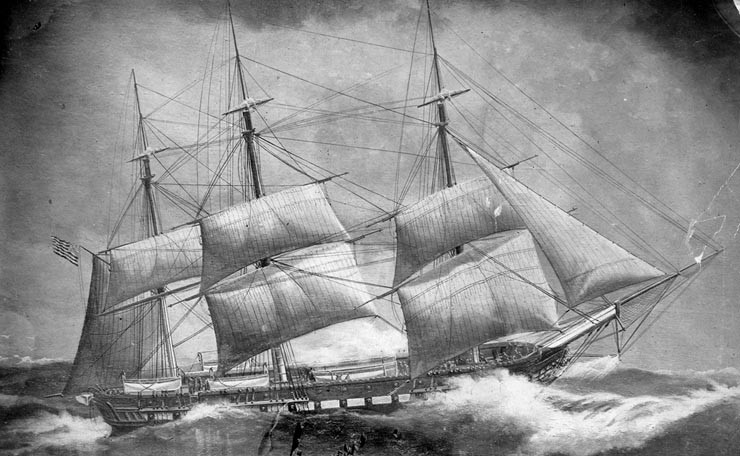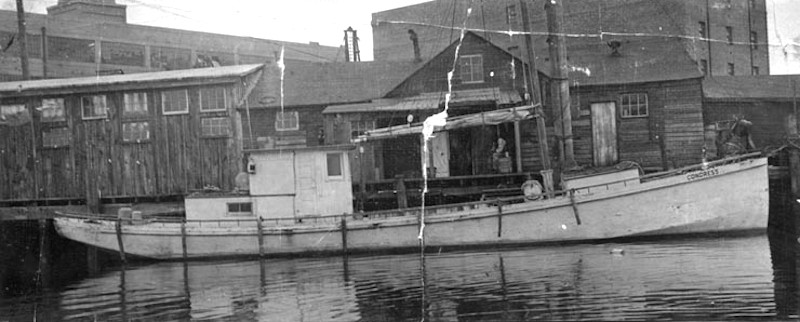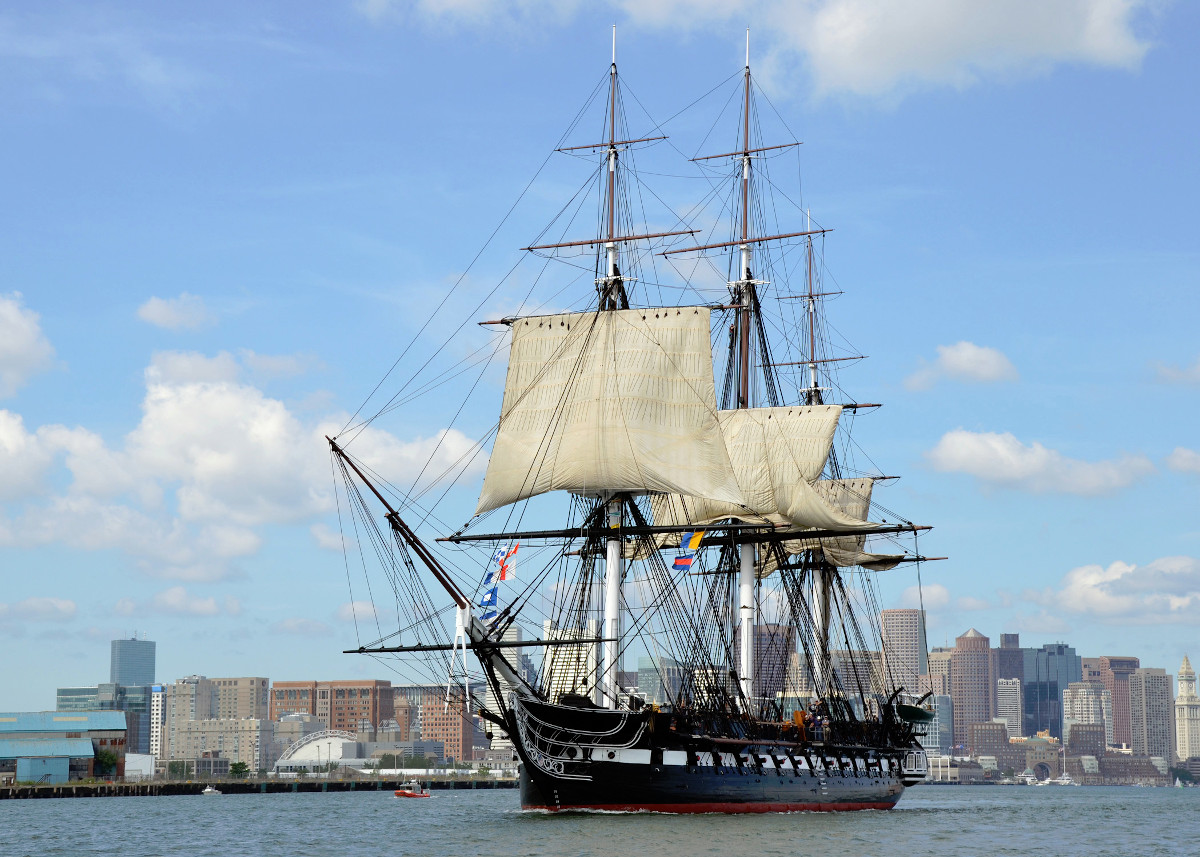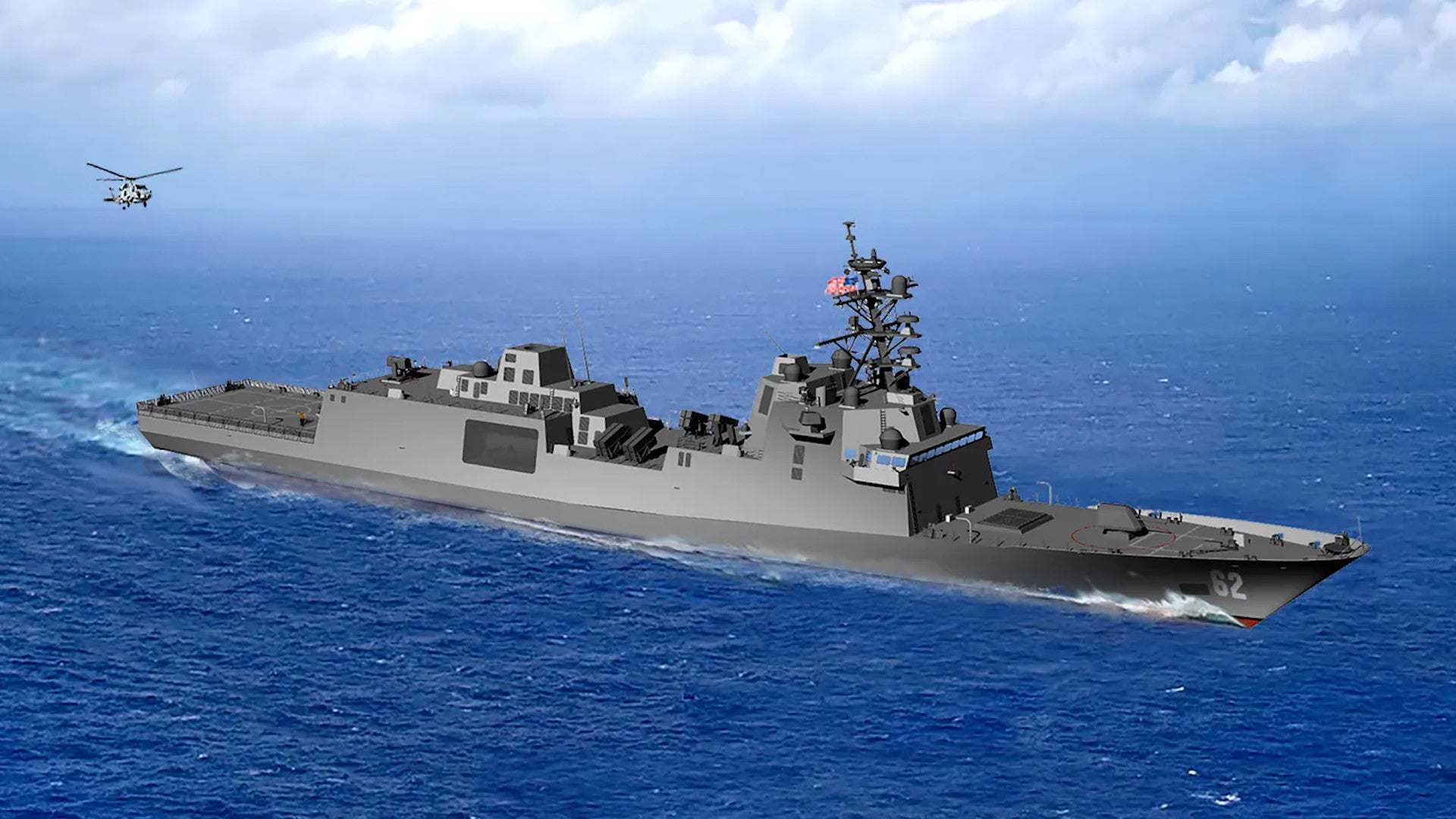Secretary of the Navy Kenneth Braithwaite told legislators at a hearing today that the second frigate in the upcoming Constellation class, ships previously referred to as FFG(X)s, will be named USS Congress. Given the context, this might have initially come off as some kind of jokey icebreaker to soften the mood or outright pander to lawmakers who control the service’s purse strings. In actuality, the Navy’s top civilian official was being entirely serious and the name is actually well in line with plans to name at least the first few of these vessels after the original USS Constellation and her sister ships, which were the first six frigates built for the fledgling U.S. Navy in the late 18th Century.
The first USS Congress also holds the distinction of being the first American warship to visit China, which seems like notable symbolism given the ever-growing importance of that country, and the greater Indo-Pacific Region, in U.S. military planning, as a whole.
Braithwaite made the announcement about the next USS Congress at a hearing before the Senate Armed Services Committee’s Subcommittee on Readiness and Management Support on Dec. 2, 2020. The Secretary of the Navy, who has only been in that post since May, had declared that the first FFG(X) would receive the name USS Constellation
in October. Since then, he has also revealed the names of a number of other future ships and submarines, all with a stated focus on hearkening back to important naval history and heritage. This has notably included plans to give at least three forthcoming nuclear submarines fish-related monikers after decades of primarily naming them after cities and states, something you can read about more in this recent War Zone piece.
USS Congress is not a particularly creative name, per se. The dysfunctional legislative branch’s overall approval rating in the eyes of the American public has been even worse than normal in recent months and, pandering or not, it may not seem like the best choice of moniker for a new warship at the moment.
A number of members of the defense press, among others, initially thought Braithwaite was outright joking with legislators.
However, USS Congress makes perfect sense in the context of the Constellation class naming plan. The original USS Constellation was also one of the first six frigates built for the Navy shortly after the end of the Revolutionary War. Two other warships had also carried the name USS Constellation during the Revolutionary War and had served with the Continental Navy, both of which were scuttled after sustaining significant damage in separate engagements with the Royal Navy.
As one of the Navy’s primary warships of that post-Revolutionary War-era, Congress fought in the First Barbary War off North Africa, including blockading Tunisia. It then ferried that country’s ambassador to the United States at the conclusion of that conflict.

The frigate also took part in the War of 1812, capturing or assisting in the capture of multiple merchant vessels. That war helped cement the United States’ independence from its former colonial parent.
In 1815, Congress fought in the Second Barbary War, sailing both off Tunisia and Libya. After that, the ship primarily conducted counter-piracy patrols closer to home.
Under the command of Captain John D. Henley, Congress also visited China in 1819, becoming the first American warship to visit that country. Unlike the Perry Expedition to Japan, decades later, which involved the threat of force before U.S. personnel were allowed to come ashore, this trip appears to have been relatively uneventful. Still, it highlights the beginnings of the Navy’s presence in the Pacific.
Starting in 1824, Congress served primarily as a reviving ship for new Navy sailors, never sailing and only moving between Norfolk Navy Yard in Virginia and Washington Navy Yard in the District of Columbia under tow. In 1834, the service finally decommissioned and scrapped the ship.
The Navy actually had three other ships named USS Congress between 1841 and 1919, as well. The first of these, another sailing frigate, was sunk by the Confederate ironclad CSS Virginia during the Civil War. The second ship in this trio, a screw sloop, that could also operate either by way of its steam engine-powered propeller or under sail, served in the Atlantic and the Caribbean from 1870 until 1876. The last of these was a diminutive patrol vessel, originally built as a fishing boat, that operated in waterways around Washington, D.C. for less than a year.


The future Constellation class USS Congress will be the first time the Navy has had a ship of this name in service since 1919. If this naming scheme continues, then the service may be set to receive Constellation class frigates named after three of the other ships from the historic first batch of six, the USS United States, the USS Chesapeake, and the USS President.
The Navy will not be able to name one of the forthcoming frigates USS Constitution, at least under present conditions, as that ship actually technically remains in service after more than 220 years. Nicknamed “Old Ironsides,” is the oldest formally commissioned naval vessel still in operation anywhere in the world and serves today as a floating ambassador for the Navy, with its crew conducting various education and other community outreach activities to promote the service and its history and heritage.

Whether or not America’s legislative branch evokes positive sentiments among average Americans at the moment, it’s clear that Secretary Braithwaite has a keen sense of Navy history when it comes to naming future ships and submarines. USS Congress may not seem particularly original, and announcing it in front of members of Congress was certainly an interesting choice, but, all jokes aside, it does carry very important symbolism for the service.
Contact the author: joe@thedrive.com
